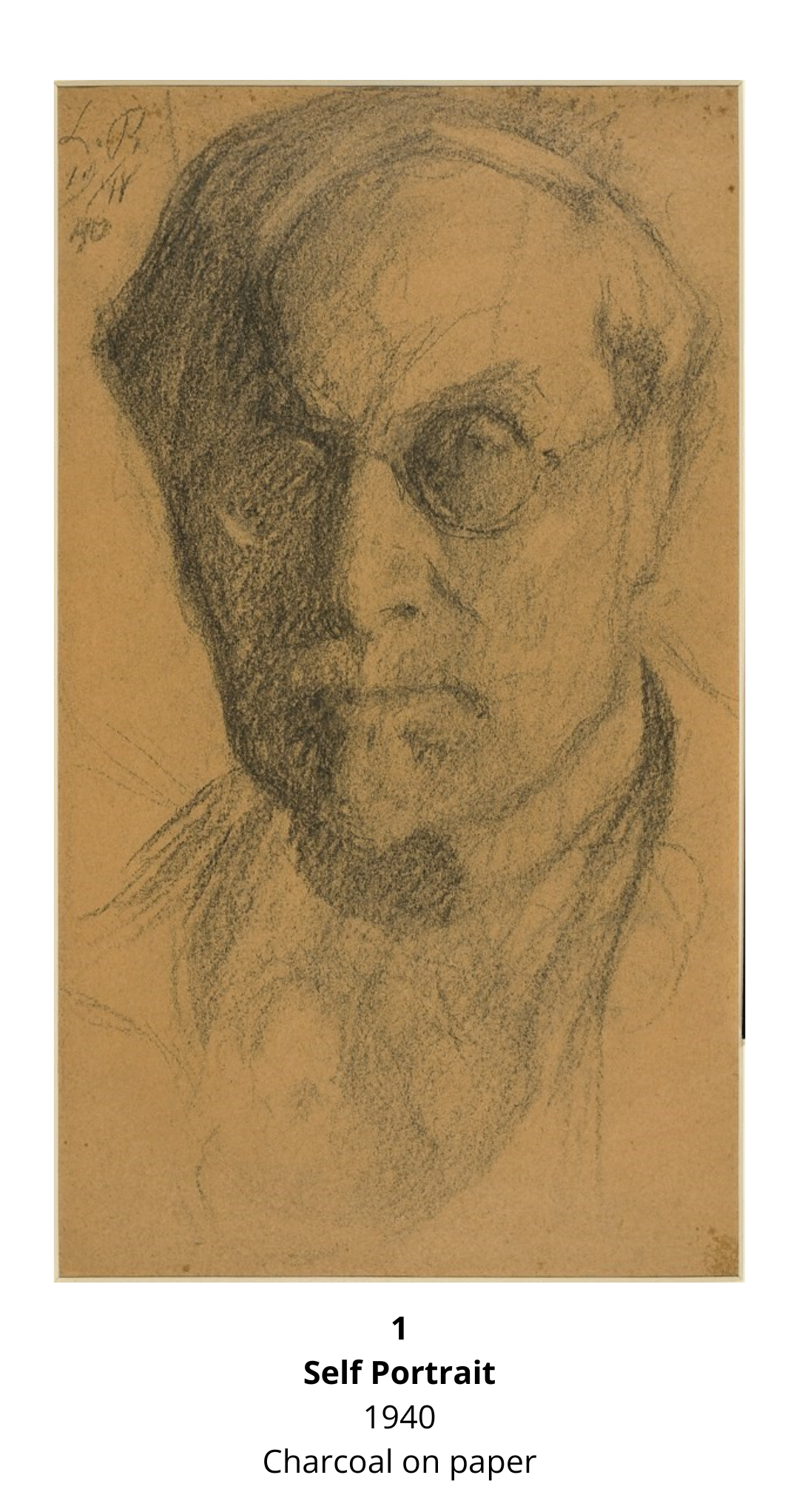In Germany everything was going wrong. Hitler was coming to power. Leonid and Rosalia didn't know what was going on in Russia under Stalin because it was definitely not being allowed to reach the West.
They were longing to get back home to see their sons again, apart from anything else. There were also plans to set up a one man exhibition to celebrate Leonid's return to Moscow. Leonid packed up his pictures and stored them in crates at the Russian Embassy. [But this was the height of Stalin’s Terror. The man in charge of the promised exhibition disappeared – like so many people in that appalling time.] Boris and Alexander tried tactfully to suggest that perhaps Leonid shouldn't come home just yet. Boris wrote to him: “we have heard of your Landlady's sickness”. This was a covert way of referring to Hitler [and the rise of the Nazis.]
Boris also referred to “our local customs which make it difficult to write”. The Terror, again. So Boris became more direct: “we have found a flat for you, but perhaps it would be better if you didn't come just yet”.
And poor puzzled Leonid confided to Alexander: “I can't understand why – Boris doesn't seem to want me any more”. But by 1936 it became apparent that the Russians in Germany were being sent home without any question of what they wanted, and that their list was being pursued alphabetically. Before it reached P, the Pasternaks left Germany for England, where Lydia had married an Englishman, my father.
They came at last to London. Josephine and her husband and their two children followed suit, and on the eve of war, in 1939, Rosalia died of a heart attack. Leonid lived on for another six years. He started his memoirs and put his pictures in order. He tried to keep in touch with Boris and Alexander, but it became more and more difficult, finally dwindling to a skeletal exchange of telegrams. The most memorable being one from Boris saying that Leonid's sister Asya had survived the siege of Leningrad, and the most heart rendering being a drafted, never-sent message from Leonid to Boris, pleading: “don't desert me in my old age. I've heard nothing from you”.
There's a self-portrait [soon after Rosalia’s death], which shows him a saddened widower [1]. In the first months of 1945 Leonid died.
Epilogue
The War Years
Make sure your volume is on
In Germany everything was going wrong. Hitler was coming to power. Leonid and Rosalia didn't know what was going on in Russia under Stalin because it was definitely not being allowed to reach the West.
They were wanting very much to get back home to see their sons again apart from anything else. And somebody had promised to set up a one man exhibition to celebrate Leonid's return. And Leonid packed up all the pictures and started storing them in crates at the Russian Embassy. And at the same time, Boris and Alexander were trying tactfully to suggest that perhaps Leonid shouldn't come home just yet. Boris wrote to Leonid: “we have heard of your Landlady's sickness”. This actually was a covert way of talking about Hitler.
Boris also said: “our local customs are such that it is difficult for us to write”. And the local customs were Stalin's terror and so Boris was writing to Leonid: “we have found a flat for you, but perhaps it would be better if you didn't come just yet”.
And Leonard was writing to Alexander: “I can't understand why Boris doesn't want me”. But by 1936 it became apparent that the Russians in Germany were being sent home without any question of what they wanted, and that this list was being pursued alphabetically and before it reached P, the Pasternak family left Germany for England, where Lydia had married an Englishman, my father.
And so they came to London and Josephine and her husband and their two children also followed suit and came to London, and on the eve of war in 1939 Rosalia died of a heart attack and Leonid lived on for another six years and he started writing his memoirs and he started putting his pictures in order and he tried to keep in touch with Boris and Alexander, but it became more and more difficult until in the end it was an exchange of telegrams. the most memorable being one from Boris saying that Leonid's sister had survived the siege of Leningrad and the most heart rendering being one from Leonid, which he didn't actually send but wrote, saying: “Boris, don't desert me in the veil of years, I've heard nothing from you”.
There's a self-portrait from this period, which shows a saddened widower, and in the first months of 1945 Leonid died.


